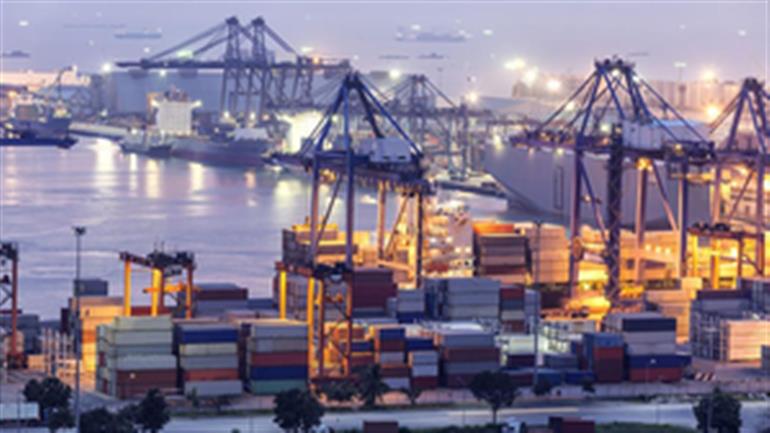Context:
Recently, the Government of India signed a $350 million policy-based loan with the Asian Development Bank (ADB) to boost India’s logistics sector.
More on the News
- The loan is signed under the second subprogram of the Strengthening Multimodal and Integrated Logistics Ecosystem (SMILE) program.
- The Department of Economic Affairs (DEA), the Ministry of Finance, the Department for Promotion of Industry and Internal Trade (DPIIT), the Ministry of Commerce and Industry and the ADB are the signatories to the loan agreement.
About SMILE program:
The SMILE program aims to support the government in undertaking wide-ranging reforms in the logistics sector in India.
The SMILE program aims to expand India’s manufacturing sector and improve the resilience of its supply chains.
The SMILE program’s comprehensive policy framework is to enhance logistics efficiency through:
- Strengthening the institutional bases for multimodal logistics infrastructure development.
- Standardizing warehousing and other logistics assets to strengthen supply chains and incentivize greater private-sector investment.
- Improving efficiencies in external trade logistics.
- Adopting smart systems for efficient and low-emission logistics.
Logistics Sector in India:
The Indian logistics market, valued at Rs 9 trillion in FY23, is projected to grow significantly, reaching Rs 13.4 trillion by FY28, registering a compounded annual growth rate (CAGR) of 8-9 per cent.
As per the Economic Survey 2021, the logistics industry accounts for 13-14% of the country’s GDP and provides livelihood for more than 22 million people.
- The average logistics cost per GDP among BRICS countries was 11%, whereas in developed countries it is around 8%.
India stands 38th out of 139 countries in the Logistics Performance Index 2023 which is released by the World Bank.
Major Logistics Projects in India:
Bharatmala Project: It is a new umbrella program for the highways sector launched by the Ministry of Road Transport and Highways in 2017, to improve road connectivity across the country.
- It focuses on optimizing efficiency of freight and passenger movement across the country by bridging critical infrastructure gaps through effective interventions like development of Economic Corridors, Inter Corridors and Feeder Routes, National Corridor Efficiency Improvement, Border and International connectivity roads, Coastal and Port connectivity roads and Green-field expressways.
Sagarmala Project: It is the flagship programme of the Ministry of Ports, Shipping and Waterways launched in 2015 to promote port-led development in the country.
- The core vision of the Sagarmala programme is to reduce the logistics cost for EXIM and domestic trade with minimal infrastructure investment.
Dedicated Freight Corridors (DFCs): It was announced by the Govt, in the Railway Budget for 2005-06. They are high-capacity railway corridors exclusively meant for the transportation of goods and commodities.
- Indian Railways has operationalized over 90% of its Dedicated Freight Corridor (DFC), covering a distance of over 2,800 km.
PM GatiShakti National Master Plan (PMGS-NMP): It was launched in 2021 to provide multimodal connectivity infrastructure to various economic zones across India.

- Bharatmala, Sagarmala, dry/land ports, and other infrastructure projects have been incorporated under the PM Gati-Shakti Plan to enhance connectivity and logistics efficiency.
National Logistics Policy 2022 (NLP): It aims to create a single-window e-logistics market and make MSMEs more competitive.
Recent logistics Developments
Bihta dry Port: Bihar recently inaugurated the state’s first dry port at Bihta, Patna, Bihar to connect major gateway ports of Kolkata, Haldia, Visakhapatnam, Nhava Sheva, Mundra, and the major national and international trade routes.
- A dry port, also called an Inland Container Depot (ICD) or multimodal logistics centre, is an inland terminal connected to a seaport by rail or road.
India is connecting Paradip and Visakhapatnam Port to the Chennai-Vladivostok maritime corridor.
International trans-shipment hub: The central government has notified the international trans-shipment hub at Galathea Bay in the Andaman & Nicobar Islands as a ‘Major Port’.
- A trans-shipment port is a kind of transit hub where cargo from one ship is transferred to another ship on the way to its final destination.
Recently, the Cabinet approved 12 New Industrial Cities under the National Industrial Corridor Development Programme (NICDP).

